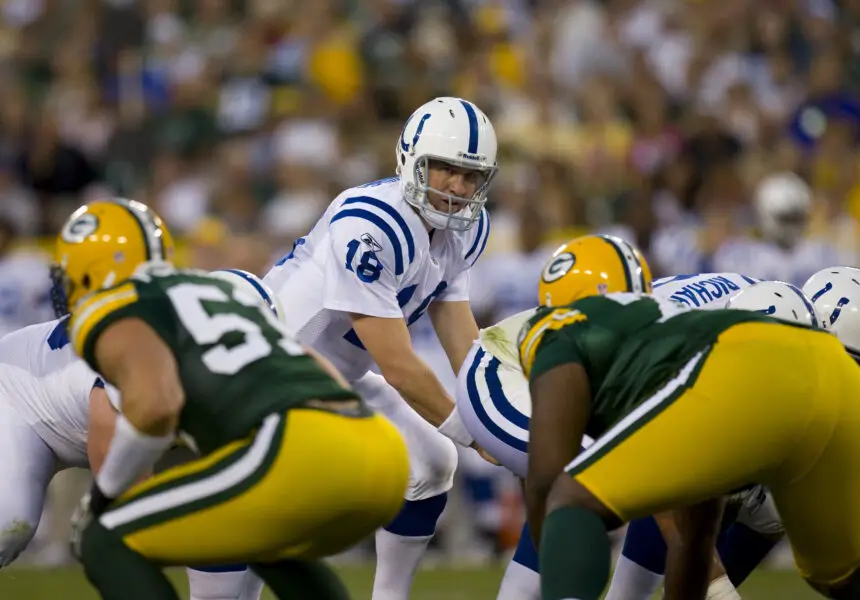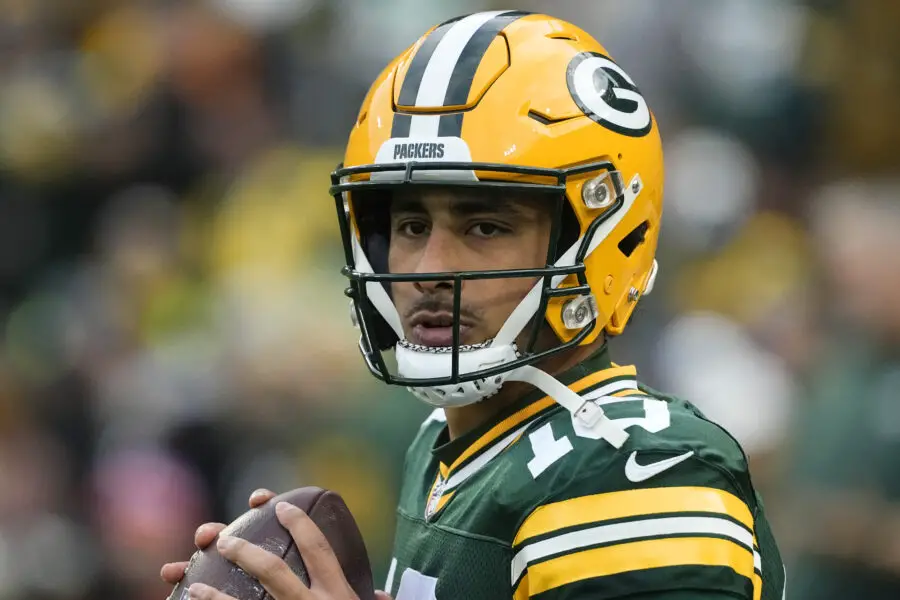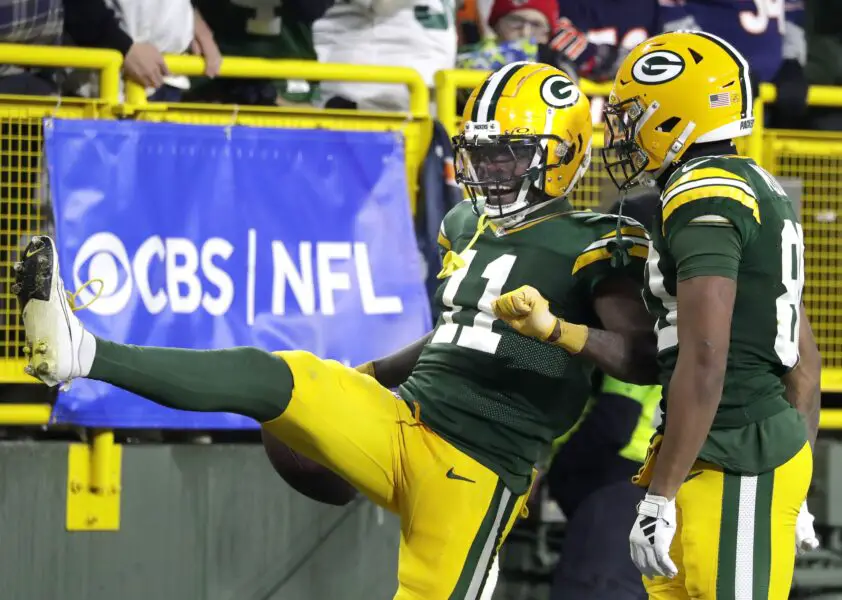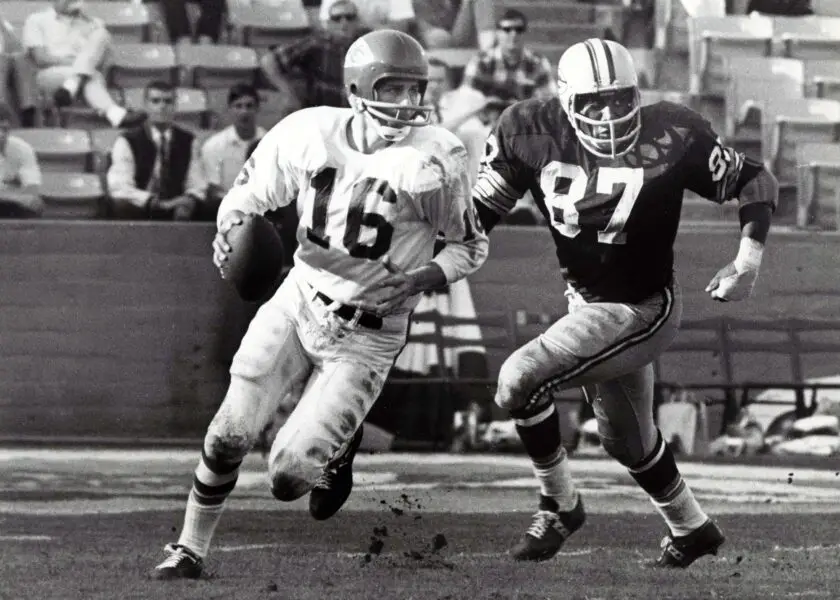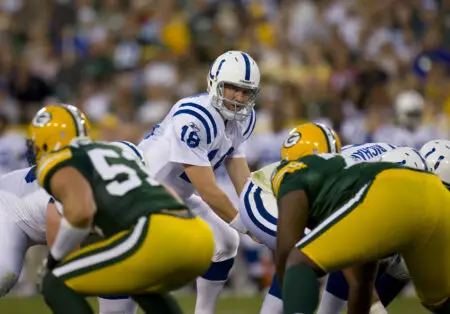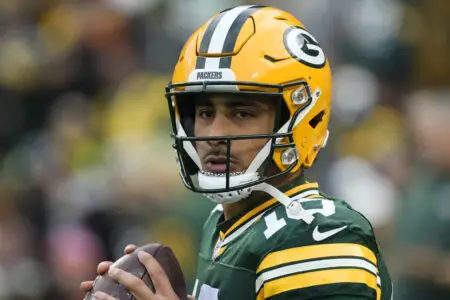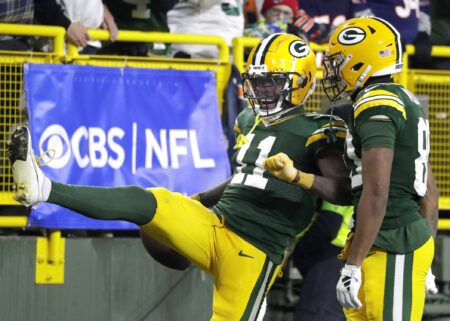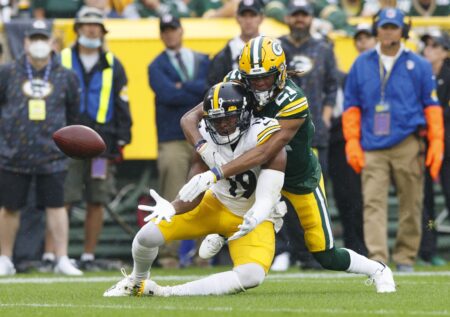They say defense wins championships and being able to pressure quarterbacks on the regular certainly helps. The Green Bay Packers have had some elite pass rushers in their long, long history who have helped them win the most championships in the league. Let’s take a look at some of the best pass rushers in Packers history.
The Best Pass Rushers in Green Bay Packers History
Kabeer Gbala-Biamla, 2000-2008
You can’t tell the story of Packers pass rushers without mentioning Kabeer Gbala-Biamila. At the turn of the Millennium, Green Bay took this edge rusher out of San Diego State in the 5th round of the 2000 NFL Draft. He took his rookie season to get acclimated with the league and broke out in a massive way starting in year two.
Over the course of the next four years, KGB racked up a whopping 49 sacks, the most coming in that first breakout year where he terrorized quarterbacks to the tune of 13.5 sacks. He did all of that while coming off the bench where he didn’t record a single start. Additionally, he forced 17 fumbles and recovered seven. He also recorded a single interception: a 72-yard pick-six against the Bears in Week 5.
Gbala-Biamila finished his NFL career playing all nine years in Green Bay where he finished with 74.5 sacks, good for the fourth-most in team history. He was elected to the Hall of Fame in 2013.
Clay Mathews, Jr., 2009-2018
The most recent elite pass rusher is none other than Clay Matthews, Jr. The Packers used a 1st round pick on the linebacker/edge rusher out of USC and he made an immediate impact. As a rookie, Matthew earned his first of six Pro Bowls and finished third in Defensive Rookie of the Year voting.
In the Super Bowl year, Matthews had his own career year. With a career-best 13.5 sacks, Matthews finished second in Defensive Player of the Year voting and earned first-team All-Pro honors. He was integral to that Super Bowl XLV win as they forced a crucial fumble in the fourth quarter.
In total, Matthews finished with those six Pro Bowls, a first-team All-Pro, a second-team All-Pro, a Super Bowl, and 83.5 sacks. He sits with the second-most sacks in team history.
Willie Davis, 1960-1969
In what could possibly be one of the greatest trades in Packers history, Green Bay traded for offensive tackle Willie Davis from the Cleveland Browns. After mulling over retirement because he was distraught and found out he was traded via the radio, Vince Lombardi got his man and the rest is history.
Davis is one of the best pass rushers in all of NFL history, not just Packers. Nicknamed “Dr. Feelgood,” the doctor was in on every play and terrorized quarterbacks on every play. When it comes to his statistics, we have had to go back and officially assign them because sacks were not an official stat in his day. According to Pro Football Reference, Davis leads the way in Packers history with 99.5 sacks and he very well could have even more.
The Hall of Famer won a total of five championships in Green Bay, including Super Bowls I and II. He was a massive force and is considered among the elite of the elite in NFL history.
Reggie White, 1993-1998
As is the case with Davis, you cannot tell the Packers story of pass rushers without Reggie White. While most of these picks are either home-grown or spent the majority of their career in town, White was elite before he came to Green Bay in Philadelphia. He came to the Packers as a free agent before the 1993 season and didn’t miss a step.
In his career as a whole, White recorded a ridiculous 198 sacks and 68.5 of them came in Green Bay. He is widely considered among the greatest defensive players in NFL history and there are plenty of reasons why. He won the Defensive Player of the Year award twice (once in Philly, once in GB), 13 Pro Bowls, eight All-Pros, and appeared on both the 1980s and 1990s All-Decade teams. Imagine his odds at wetten.com for him to win DPOY this year if he was in his prime
He helped the Packers make the playoffs in each and every season he was in town. Those 198 sacks are good for second-most among all NFL players of all time. He is a legend and the story of the NFL cannot be told without him.
Main Image: Malcolm Emmons-USA TODAY

